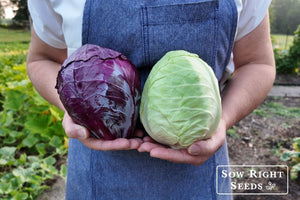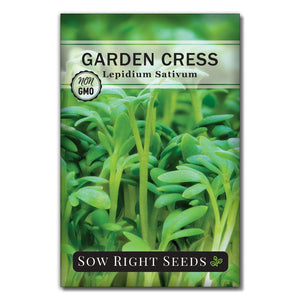Why Gardening With Kids is a Great Way to Learn Life Lessons
Kids in the gardenHow can gardening help my kids? You may have asked yourself this question as you’ve planted seeds and harvested tomatoes. You may have wondered if involving your kids in the garden has any long-term benefits. Is it worth your effort now for their future development?

Parents and grandparents are always looking for ways to teach the next generation about the life skills and values that are important to them. Gardening with kids is rewarding in many ways, especially in teaching values that help them live fulfilling lives.
The garden is a unique classroom where what you learn continues to grow throughout your life. So, if you’re wondering how seeds and dirt can benefit your family, here are just ten life lessons or values that gardening can teach you and your kids.
10 Values That Gardening Can Teach Your Kids
1 - Patience
Also called delayed gratification, patience is probably the first lesson that comes to mind with gardening. It’s a hard lesson to learn, but a garden has a wonderful way of teaching it. We plant a seed, water, wait. Eventually, we get rewarded for our patience. To help patience grow, plant crops that have different seed-to-harvest dates so kids can see that there are different timetables for different foods. Spinach will give you a quick harvest. Since carrots can be harvested in different sizes, they are a great option to show even preschoolers that waiting gives you a bigger vegetable. Our carrot rainbow mix is a fun crop that will give you a variety of colors.
2 - Hard Work
Effort brings results. Hard work can be one of the most rewarding lessons learned in a garden. You can’t just fling seeds around and expect them to grow into something. It takes consistent attention and effort. It starts with preparing the soil and continues with nurturing the tender plants, picking weeds, harvesting, and planning for next year. It might seem daunting, especially to kids, but when they bite into a watermelon and literally enjoy the fruit of their labor, they’ll taste the sweet reward of work.

3 - Reap What You Sow
A pumpkin seed does not grow up to become an ear of corn. The process of planting a seed and watching it become what it was meant to be is a great life lesson learned in the garden. With older kids, it’s a chance to talk about what their current choices will grow into.
4 - Self-Control
The value of self-control affects not just ourselves but those around us. You’ll have a more successful garden if you can control the pests and the plant. You can’t just stomp around wherever you want or let rabbits overrun your lettuce. Tomatoes and other spreading plants can benefit from controlled growth and supports. Reigning things in and thinking through options can benefit kids and gardens.

5 - Health and Nutrition
As a child learns about the nutritional needs of a plant, they can liken that to their own nutritional needs. They can see how a plant wilts when it doesn’t have enough water or how it is more susceptible to disease when its basic nutritional needs aren't met. How many kids say they don’t like peas but will pick and eat them straight from the garden? Encourage trying new vegetables by growing something unique like lemon cucumbers or Romanesco Broccoli.
6 - Responsibility
Having the assignment to pull weeds or water the garden develops responsibility. Children learn quickly that it matters if they show up and do what they’ve been assigned to do. Garden chores also give you an opportunity to show that you trust them and recognize their growing capabilities. You can start small and as abilities increase, give them greater responsibility.

7 - Nature’s Renewal
This one is subtle but important. Through working in a garden, kids learn that they are part of the natural world. They see the seasons and rhythm of nature and discover how they are part of a bigger connected world of living creatures. They also learn that there are seasons to life. Time to plant, a season of vigorous growth, and a time to harvest.
8 - Self-sufficiency
Kids naturally want to do things on their own. When kids realize they can grow their own food and meet a basic lifelong need, their confidence grows as well. Being able to serve dinner with what they grew in the garden shows them just how capable they are and they’ll want to continue on the path of self-reliance.
9 - Sharing
When you get a bumper crop of tomatoes, you can experience the joy of sharing the harvest. Giving to people in your neighborhood or donating to a local food bank can be a great way to teach kids the joy that comes from sharing.

10 - Family Relationships
The most important benefit of a family garden is the connections that grow between family members. It’s the simple daily things that have the most impact. Spending time together in a shared activity can strengthen relationships. The daily act of tending the garden together increases opportunities to communicate while working side by side.
There is so much to learn in the garden. These 10 garden values are just the beginning. The longer you garden, the more you'll realize there’s no end to the life lessons you can discover. When we became parents, we realized how much we had learned in our our family gardens.
Gardening with children is a natural way for them to learn these valuable life lessons. It's never too early to start learning.








Leave a comment